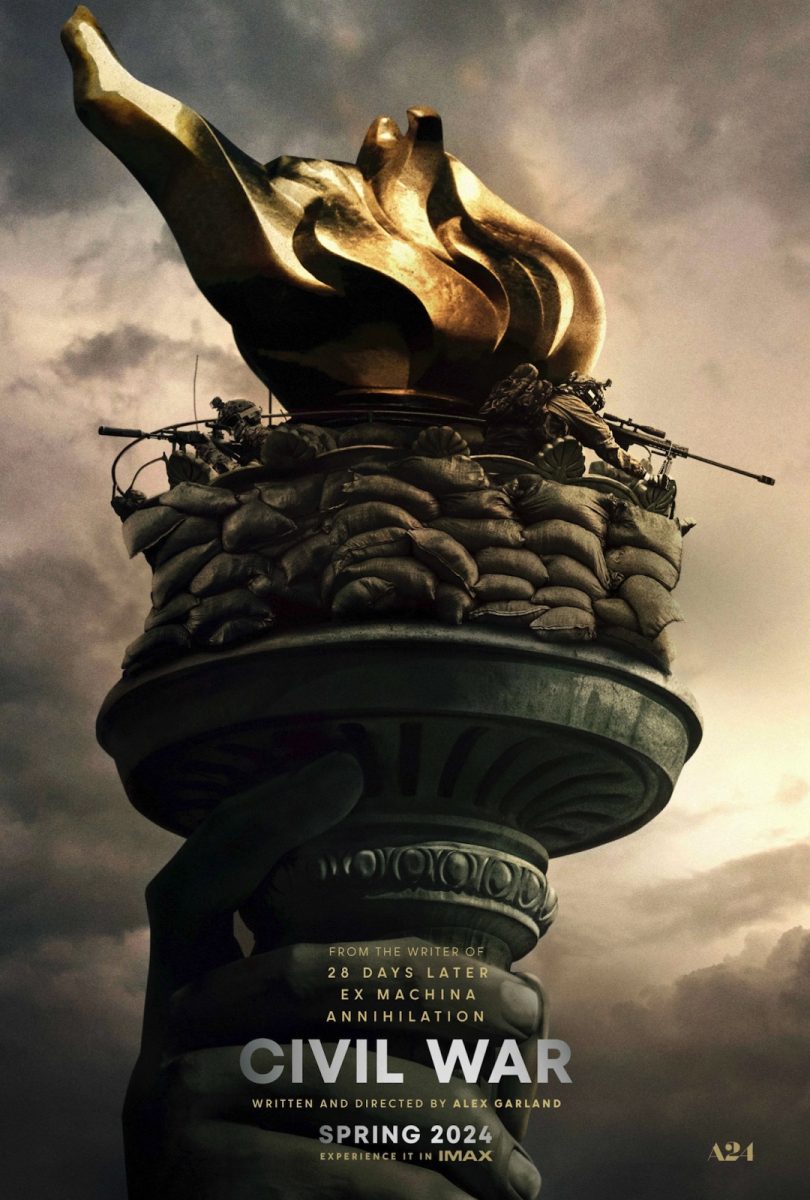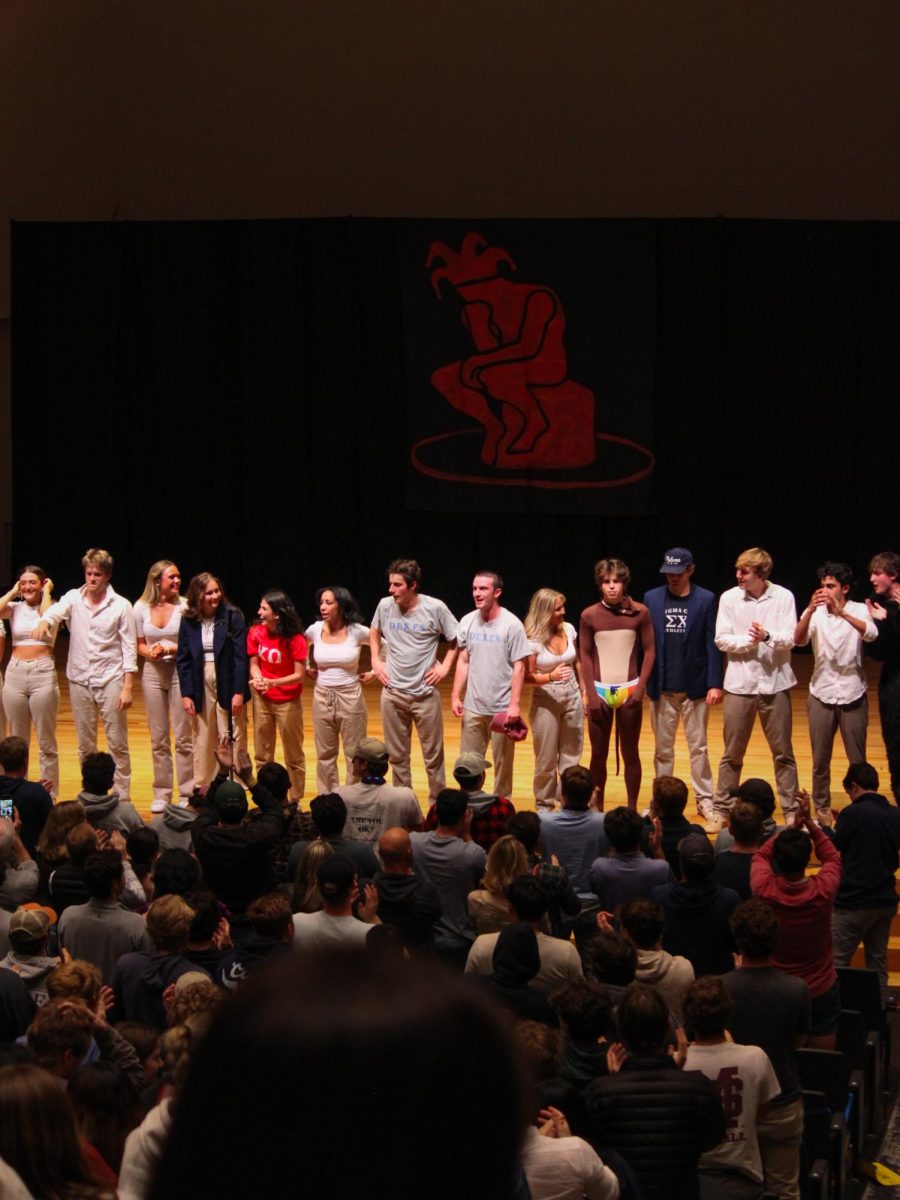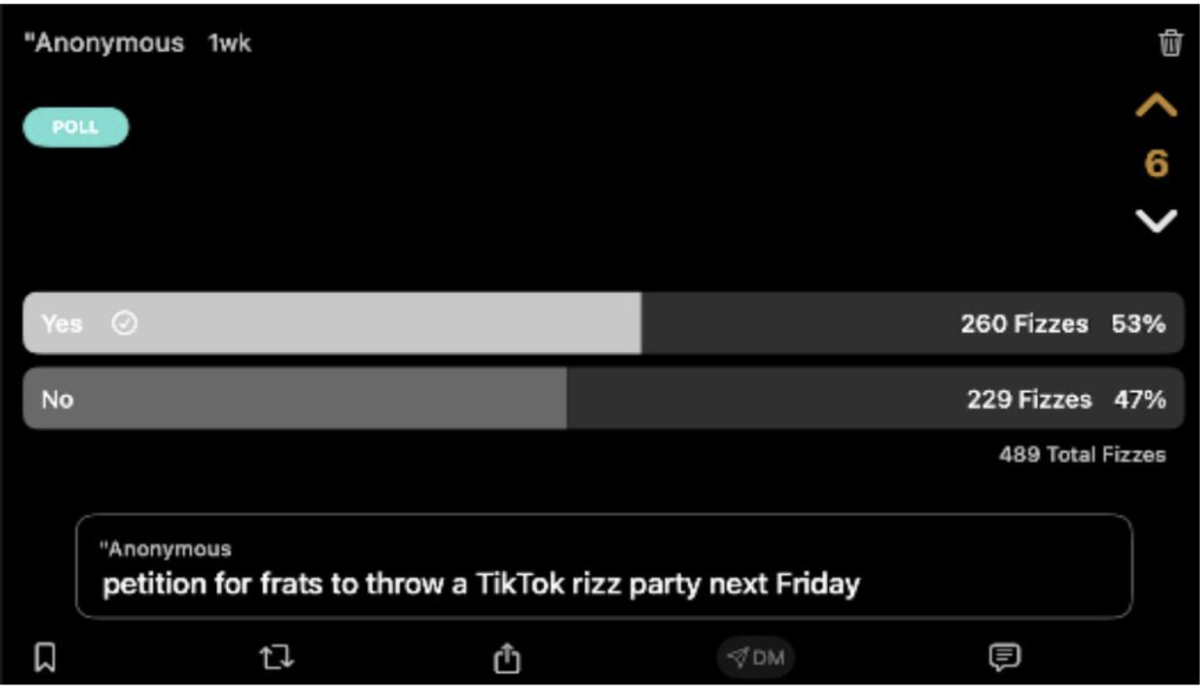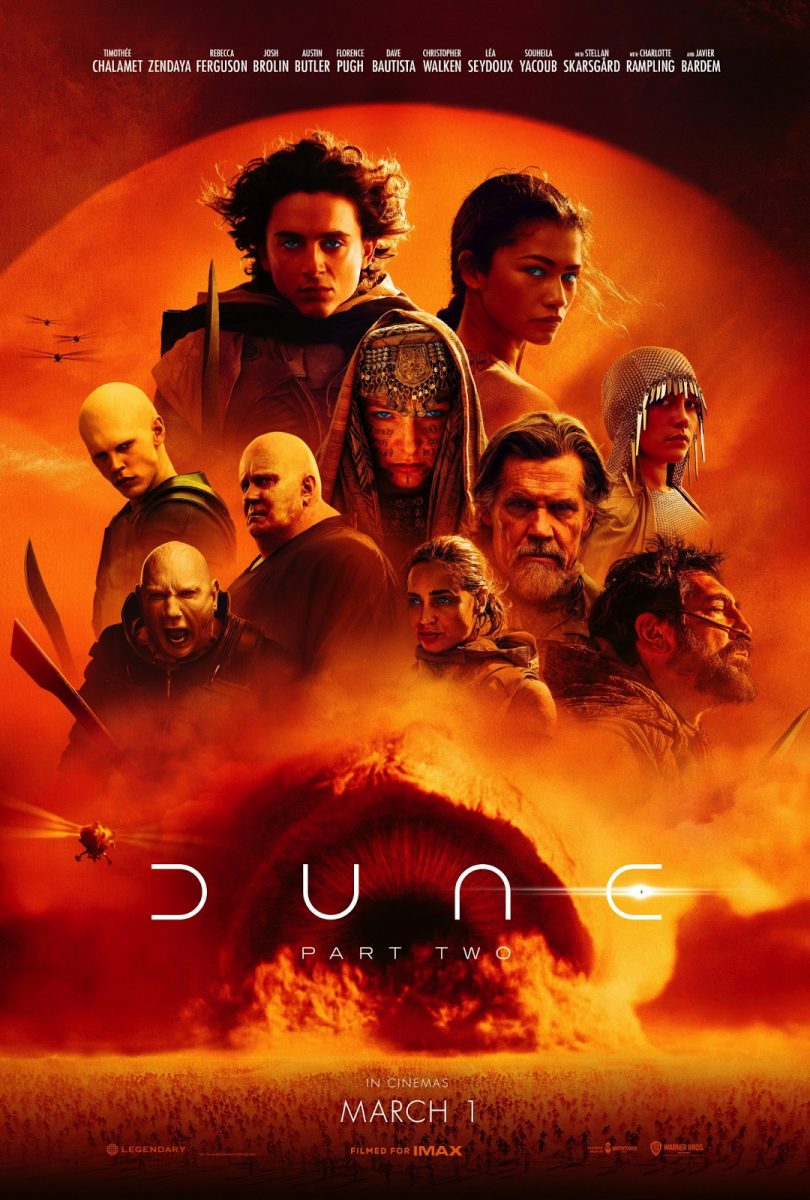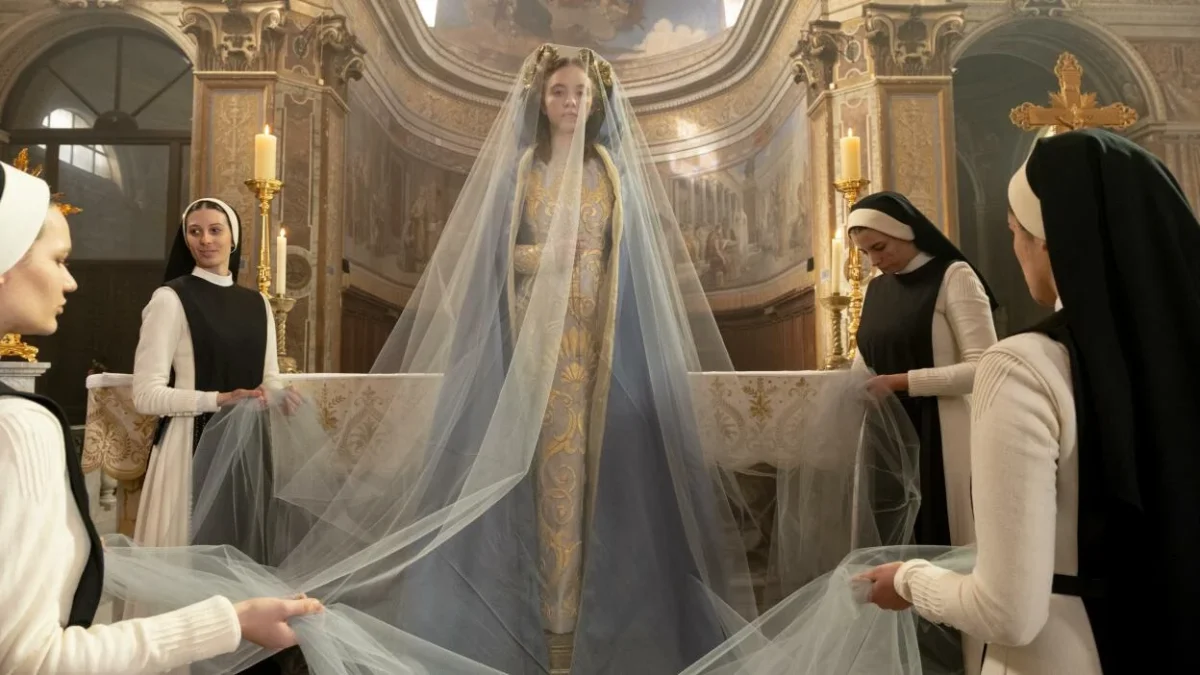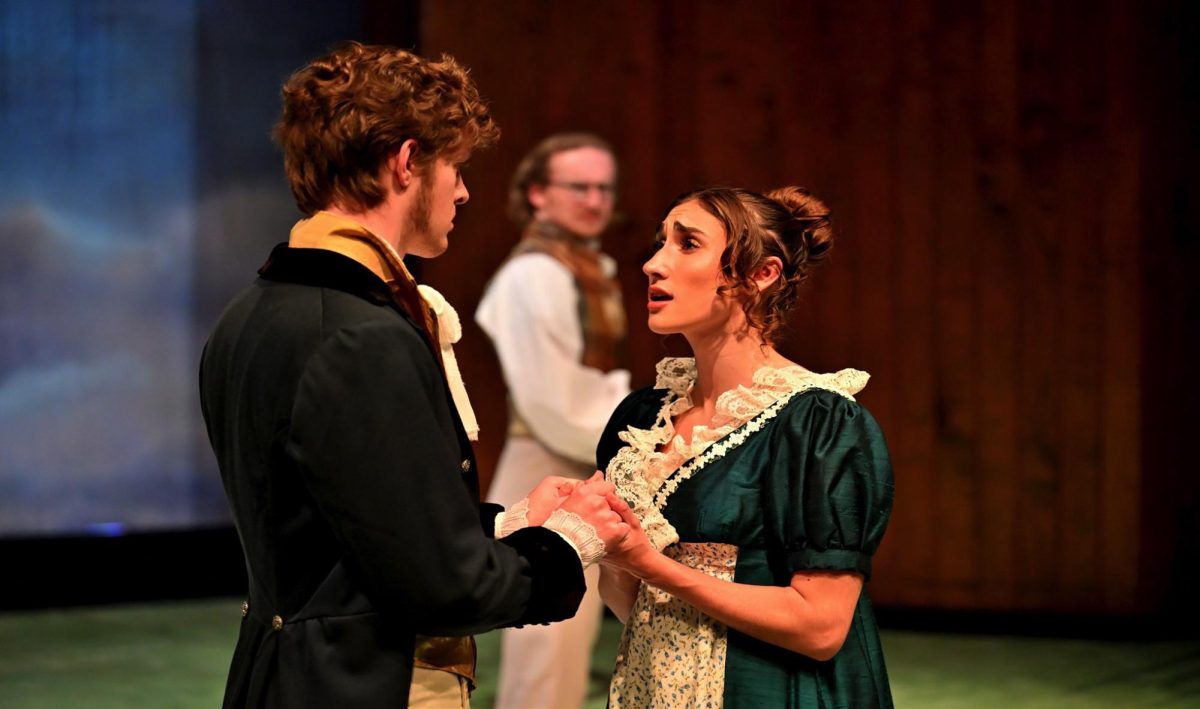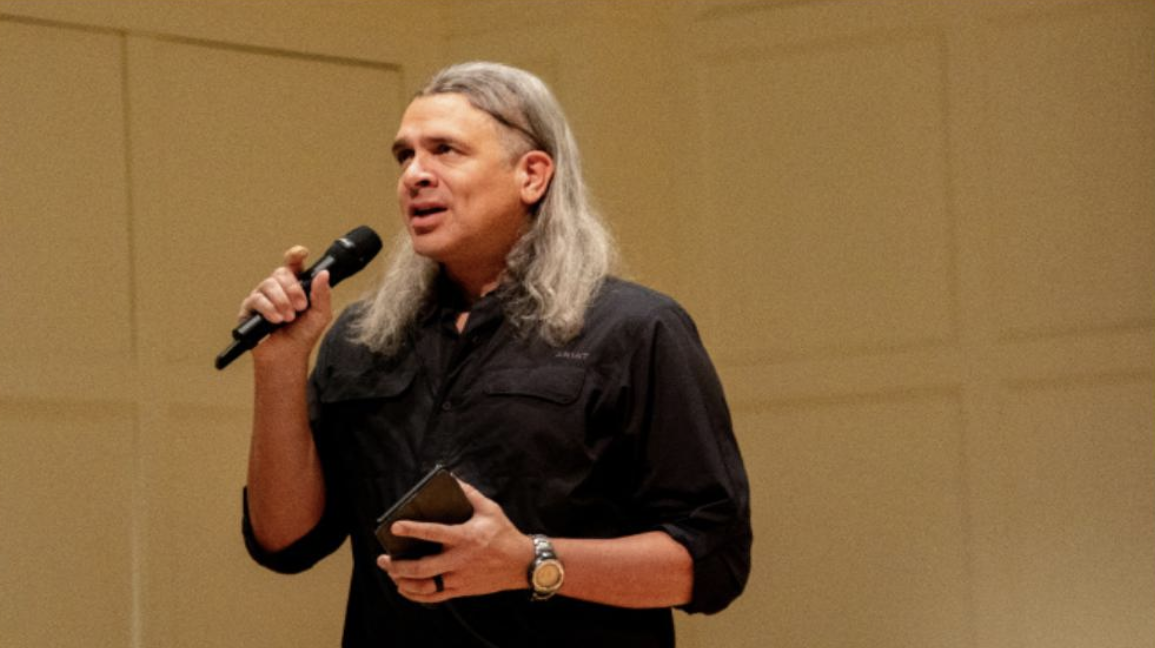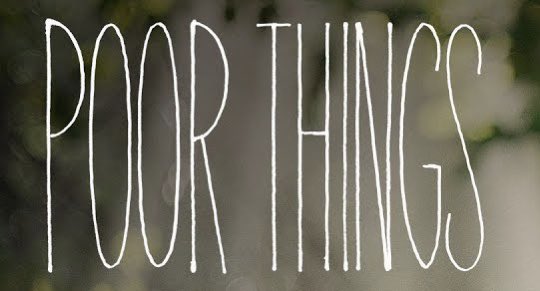I entered my “Hunger Games” phase in fourth grade when I read the first book and have arguably never left. In middle school, I dressed as Katniss Everdeen during spirit week, and in high school, I wrote a four-thousand word research paper on “The Hunger Games.” After I read each book, I would then watch the corresponding movie, and I firmly believe that the original group of “Hunger Games” movies are some of the best book-to-movie adaptations of all time. All this to say, my expectations for “The Ballads of Songbirds and Snakes” were high, and unfortunately, I’m not sure if the prequel film lived up to them.
The film’s main problem is its pacing. The beginning especially felt fast, which meant viewers never got to know much about any of the tributes in the 10th Hunger Games. I would argue this even extends to one of the film’s major characters Lucy Gray Baird (Rachel Zegler), whose background is revealed through conversation with President Snow (Tom Blyth) rather than actual scenes showing her life before the games.
By the time Baird and the others are thrown into the arena, scenes that have the potential to pack an emotional punch lose their power due to the anonymity of the characters. It is possible that this could have been an intentional choice, since the Hunger Games themselves had not yet become the media phenomenon that they are in the original films. Even so, the lack of knowledge about the tributes made the games feel low stakes.
[Snow is] not a villain yet. He’s maybe ambitious to a slightly toxic extent, but he’s still a good person.
— Tom Blyth
This rushed pace also extended to Baird and Snow’s love story. While Zegler and Blyth did have undeniable chemistry, it seemed that Snow was willing to risk everything for Baird after just a few conversations with her. This appeared out of place from such a calculating and intentional character. I do think the movie could have benefitted from being split into two parts, especially considering the book it is based on is the longest in the “Hunger Games” series by far. However, I understand the fear of any director to make this choice after the backlash to the dual installments of “Mockingjay” — a decision even director Francis Lawrence regrets.
The pacing should not diminish the talents of Blyth and Zegler, as they were both stellar in this movie. In addition to the two leading actors, a few other performances stood out to me. Dimitri Abold plays Reaper, the male tribute from District 11. In a poignant moment after Dill — the female tribute from his district — dies, Reaper uses his immense physical strength to carry the bodies of the other dead tributes to the center of the arena in a makeshift memorial and then tears down the flag of Panem to cover them. Abold, who did not have much screen time until this scene, came through to produce one of the film’s most emotional moments.
Another shining performance came from Josh Andrés Rivera, who plays Snow’s affluent friend Sejanus Plinth. Plinth is originally from District 2, but his wealthy father was able to buy their family’s way into the Capital. Due to this, Plinth has considerable empathy for the districts and repeatedly comments on the moral problems with the Hunger Games.
Rivera plays Sejanus with a fearlessness that is evident in his sneaking into the arena, or standing up to the frightening Dr. Volumnia Gaul, played by Viola Davis. But beyond being a bold rebel, Rivera portrays Sejanus as a relatively normal student at the Academy, one who is a great friend to Snow and faces snickering at the hands of his classmates for being from the districts. I found him admirable but also realistically relatable, and was rooting for him more than I thought I would.
I do think the movie could have benefitted from being split into two parts, especially considering the book it is based on is the longest in the “Hunger Games” series by far.
Finally, a side character who absolutely stole the show was Jason Schwartzman as Lucky Flickman, the first ever host of the Hunger Games. Schwartzman was absolutely hilarious — almost unsettlingly so. Lucky Flickman is most likely the father of Caesar Flickerman, the host of Everdeen and Peeta Mellark’s Hunger Games. Caesar Flickerman had a more empathetic approach to hosting, which gave a sense that he was rooting for all the tributes. Lucky Flickerman, on the other hand, threw out savage remarks with seemingly no care at all for the tributes.
Another gem of the film was its soundtrack, which can be attributed to Zegler, who, according to her Instagram, sang live for every take in the movie. While some viewers have complained about the amount of music in the film, I loved the way Baird expressed herself through song. Each of her performances had so much character, which contrasted previous protagonist Everdeen, who was not as expressive with her emotions. In particular, “Pure as the Driven Snow,” Baird’s love song to Snow, is such an interesting depiction of her perception of him. Twice in the song she sings of how she trusts Snow, and Zegler’s infliction and annunciation of the word “trust” foreshadow that this trust could be misplaced.
Regarding the devolution of Baird and Snow’s relationship, another high point of the film was the arc Blyth created for Snow, which he discusses in an interview with GQ.
“[Snow is] not a villain yet,” Blyth said. “He’s maybe ambitious to a slightly toxic extent, but he’s still a good person.”
Blyth portrays this perfectly, as in the beginning, Snow was genuinely likable. He’s seen as an underdog compared to his other Capital peers, and despite hiding who he really was, he clearly cared about providing for his family. However, this care soon devolves into a care for power rather than humanity, and that was captivating to witness.
Overall, I may not “volunteer as tribute” to watch this film over and over again, but I would still recommend “The Ballad of Songbirds and Snakes,” especially for big “Hunger Games” fans.



